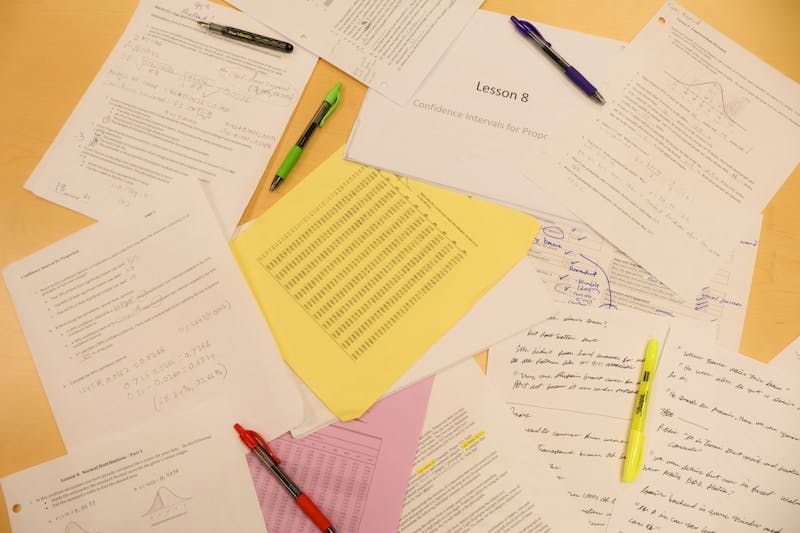If you were one of the individuals who could not attend this year’s MLK March for Humanity and felt upset with the university’s lack of prioritization, I want you to imagine for a moment if this is how you feel every day. Every day there are events you cannot attend or classes you are late to. Maybe you physically cannot go to things because they are being held in inaccessible areas like many events are. Perhaps you cannot go to things because you have more pressing things to address like doctors’ appointments. I bet the FOMO would be so real for you.
Being able to attend events — physically, on time or even at all — is a privilege.
In last week’s online publication of The Slate, members of the organization raised concerns of accessibility of events on campus after overwhelming discontent with the overlapping of the 36th Annual MLK March for Humanity and other mandatory engagements like sports practices, honors college meetings and pep band rehearsal. The article “The Slate Speaks: The accessibility of events on campus” brings to light issues of prioritization on campus under the guise of accessibility without acknowledging a larger issue of accessibility for students with disabilities.
As an able-bodied white woman, I will say that I am fortunate to have been able to attend this year’s March for Humanity. I skipped a lot of my other commitments to be there, but I am so glad I did. (If you are reading this and expected me elsewhere, I apologize.) Joanna McClinton, Pennsylvania’s first female Speaker of the House of Representatives, is such an electrifying orator. However, if we are going to talk about accessibility, let’s talk about accessibility for people with disabilities, a community often left out, even if not intentionally.
The issue many people had with the timing of the MLK March is an issue some people deal with every day. People with disabilities have a unique relationship with time. Some people may need extra time to accomplish things; that does not mean they cannot do it at all. In life, we have normative time, which is the seemingly normal segmenting of time that we just have to deal with. For example, at Shippensburg University, classes are set up so that students sit in class for 50 or 75 minutes and they get 10 or 15 minutes to get to the next one. Even though this is the way life is set up, this does not work for everyone. Time, in and of itself, is a social construct.
Within the disability community, there is a phenomenon called crip time, crip being a reclaimed word by the disability community and is being used in a theoretical sense, not a slur as many people still use today. Crip time is an accommodation associated with time. To crip time, as a verb, would mean to have flexible standards for punctuality and allow for extra time to do something, unlike current normative time standards. For example, this could look like giving more time to get to classes. People with disabilities sometimes physically take longer to get places or have additional tasks to complete that take up time such as doctors’ appointments.
Beyond this, I want to talk about the MLK March specifically. Structurally, this event was held in the oldest building on campus on the second floor at one of the farthest points on campus. Additionally, the event featured several speakers, but there were no American Sign Language translators or transcriptions for those who may have needed accommodations like that. The event then moved outside for a march of a considerable distance from Old Main Fountain to the Ceddia Union Building. I’m not sure accessibility was thought about for this event. Many events open to the public may just be open to the able-bodied public.
However, this is often not done out of maliciousness. It is more thoughtlessness. People do not tend to think of accessibility unless they are directly affected, which is likely to happen one day. Newsflash — anybody can become disabled at any time.
I am thankful I am able to attend events as I please and write my thoughts in a platform, because not many people can do the same.
As Martin Luther King Jr. said in his letter from Birmingham Jail, “Injustice anywhere is a threat to justice everywhere.”


The Slate welcomes thoughtful discussion on all of our stories, but please keep comments civil and on-topic. Read our full guidelines here.